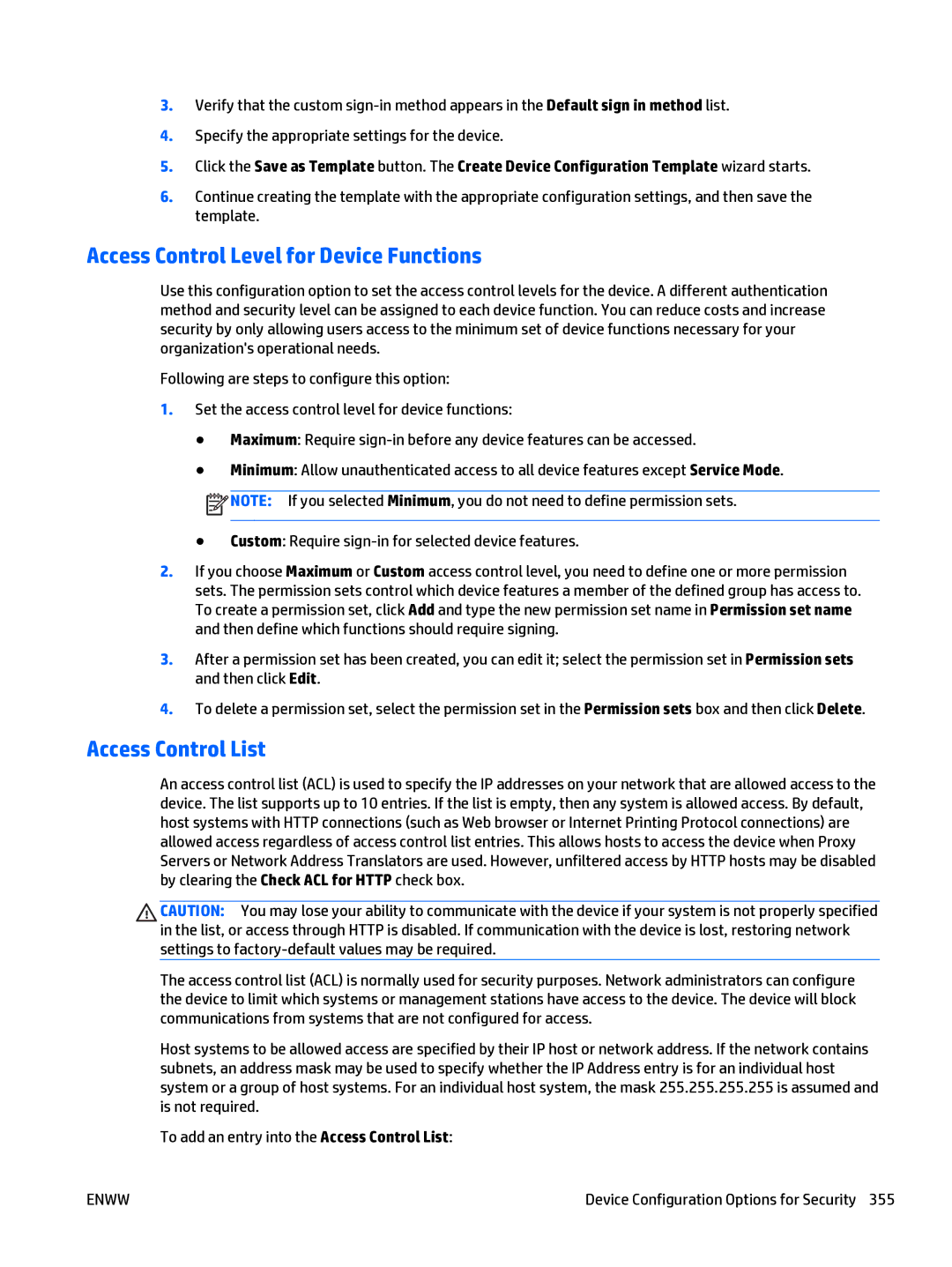
3.Verify that the custom
4.Specify the appropriate settings for the device.
5.Click the Save as Template button. The Create Device Configuration Template wizard starts.
6.Continue creating the template with the appropriate configuration settings, and then save the template.
Access Control Level for Device Functions
Use this configuration option to set the access control levels for the device. A different authentication method and security level can be assigned to each device function. You can reduce costs and increase security by only allowing users access to the minimum set of device functions necessary for your organization's operational needs.
Following are steps to configure this option:
1.Set the access control level for device functions:
●Maximum: Require
●Minimum: Allow unauthenticated access to all device features except Service Mode. ![]() NOTE: If you selected Minimum, you do not need to define permission sets.
NOTE: If you selected Minimum, you do not need to define permission sets.
●Custom: Require
2.If you choose Maximum or Custom access control level, you need to define one or more permission sets. The permission sets control which device features a member of the defined group has access to. To create a permission set, click Add and type the new permission set name in Permission set name and then define which functions should require signing.
3.After a permission set has been created, you can edit it; select the permission set in Permission sets and then click Edit.
4.To delete a permission set, select the permission set in the Permission sets box and then click Delete.
Access Control List
An access control list (ACL) is used to specify the IP addresses on your network that are allowed access to the device. The list supports up to 10 entries. If the list is empty, then any system is allowed access. By default, host systems with HTTP connections (such as Web browser or Internet Printing Protocol connections) are allowed access regardless of access control list entries. This allows hosts to access the device when Proxy Servers or Network Address Translators are used. However, unfiltered access by HTTP hosts may be disabled by clearing the Check ACL for HTTP check box.
CAUTION: You may lose your ability to communicate with the device if your system is not properly specified in the list, or access through HTTP is disabled. If communication with the device is lost, restoring network settings to
The access control list (ACL) is normally used for security purposes. Network administrators can configure the device to limit which systems or management stations have access to the device. The device will block communications from systems that are not configured for access.
Host systems to be allowed access are specified by their IP host or network address. If the network contains subnets, an address mask may be used to specify whether the IP Address entry is for an individual host system or a group of host systems. For an individual host system, the mask 255.255.255.255 is assumed and is not required.
To add an entry into the Access Control List:
ENWW | Device Configuration Options for Security 355 |
